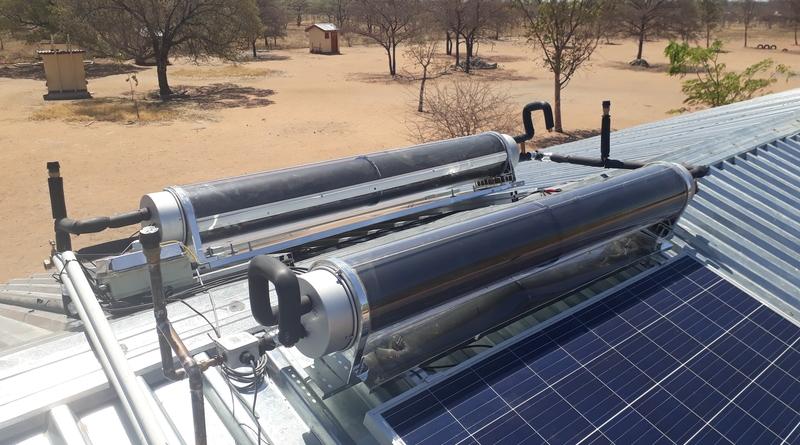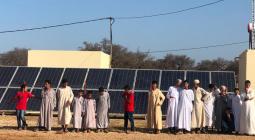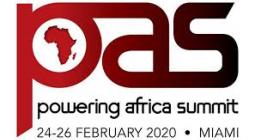Shedding climate-friendly light on energy services in Africa.

Analysis: an Irish energy project is providing renewables-based power to a rural village in Botswana
More than 80% of Africa's electricity is generated from fossil fuels, which means the effects of climate change disproportionately impact the sub-Saharan region, where millions live without modern energy access. Lack of basic services such as lighting and communications compounds poverty by limiting educational opportunity, constraining ability to generate income and leaving populations vulnerable to crime at night.
Millions of low-income households burn wood, charcoal, agricultural residues or animal dung for cooking and boiling water. This leads to deforestation, soil degradation and air pollution as well as physical burden and adverse health effects which mostly affect women.
Electricity grid expansion or local mini-grid development can be cost effective in densely populated areas where industrial energy demand is present. However, grid infrastructure can be expensive in rural areas with challenging characteristics such as low population density, low incomes, low energy demands and difficult topography. This has made sub-Saharan Africa the most electricity-poor region in the world where millions lack basic access to electricity and millions more are connected to an unreliable grid.
African continent countries are gifted with huge untapped renewable potential. Estimates of power generation potential in the continent in terms of hydro, wind, solar and biomass are impressive. Properly harnessed, this solar, wind, biomass and hydropower could change the energy landscape in Africa.
The electricity gap
That renewables are not making the necessary progress in Africa is largely due to the heavy reliance on petroleum, coal and, in some case, large hydropower. Rural areas have typically very poor electricity access and remain overly reliant on biomass sourced from dwindling forests. Energy policy is obscure at best and technical capacity is low, and the access to affordable finance is prohibitive. This has led to an electricity gap where there is a mismatch between supply and demand in the grid-connected regions; and a lack of access in off grid regions.
As is the case in many developed and developing countries in Africa, the uptake of renewables must overcome significant financial, political and social barriers. Primary among these are a low-level understanding among stakeholders of renewables, technical barriers, policy and legal barriers and economic barriers.
Ulster University's SolaFin2Go project believes that localised decentralised off-grid energy solutions represent a viable, renewables-based rural power solution that is rapidly scalable, environmentally sustainable and can be tailored to local conditions. Importantly, this solution has the potential to empower rural communities, and in particular women and youth.
The technologies and solutions available today can dramatically accelerate the growth of electricity access.
The emergence of off-grid renewable energy solutions has evolved to become an affordable option to expand access to electricity. A 2019 report from the International Renewable Energy Agency stated that tremendous progress has been made in this sector in recent years. Technology costs have plummeted, innovation in delivery models and financing has picked up and a more diverse set of stakeholders, including communities, local entrepreneurs and the private sector, have become prominent in the sector.
The project brings together research expertise and industrial/commercial partners with diverse and complementary interests in renewables and energy, infrastructure, management and finance. Our ongoing engagement with local and national government in Botswana is key in stimulating public sector procurement activity in off-grid energy access and accelerated clearance of regulatory barriers which currently deter private sector involvement. The project will use existing in-community and in-country networks to develop supply chains involving local manufacturing, assembly and component sourcing.
The solution being developed is an "entry level" plug-and-play modular solution combining photovoltaic electric systems (which convert light into electricity), batteries and innovative solar thermal technologies. We are also developing strategies to secure capital investment for equipment and maintenance through improved pay-as-you-go mobile payment systems.
The story of the SolaFin2Go project so far
The project has realised direct social, educational, economic, and environmental impacts in Jamataka in Botswana by providing lighting, mobile phone charging, televised media access, and a ready supply of hot water for one of the teacher households. This has enabled staff and school children to use computers, printers and a photocopier. It has also reduced fuel costs, CO2 emissions and air pollution associated with petrol generators and firewood. The significant positive impact for the community in Jamataka is a reduced reliance on costly and polluting energy sources. It is hoped that provision of a reliable source of electricity and hot water will also enhance the standard of living for school staff.
The project team plan to build upon the installation within Jamataka village to provide modern energy services to more homes to improve standard of living and provide a boost to the local economy. At the same time, Jamataka village will be a "living laboratory" allowing us to test new innovations and showcase demonstrators to global stakeholders. The showcase will support the team’s longer-term vision of larger scale deployment of SolaFin2Go technology in more communities around the world.
*TITLE PHOTO: Part of the SolaFin2Go project installation in Jamataka in Botswana
3 February 2020
RTE



